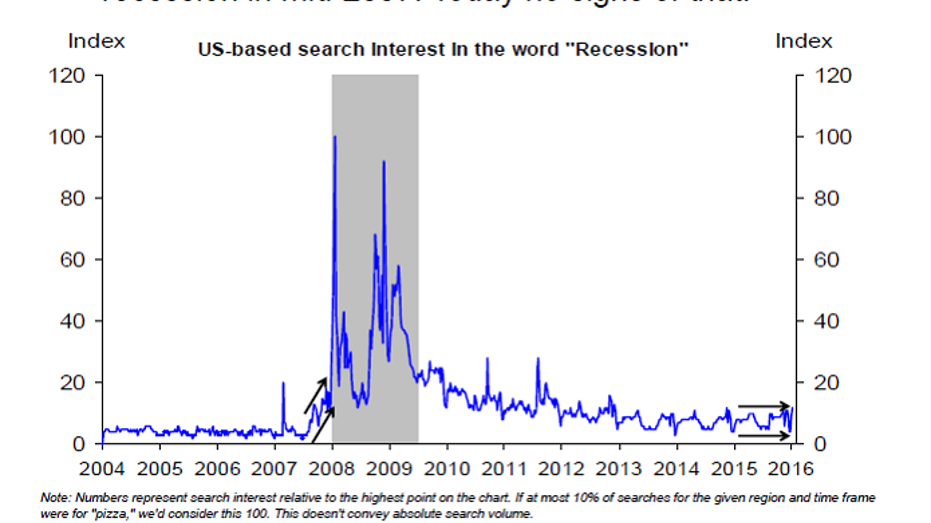Market Pros Fear Recession, Consumers Not So Much

On a day when the Dow Jones Industrial Average is down more than 500 points and all three U.S. stock markets have fallen into correction territory, there are myriad concerns.
Among them: plunging oil prices that threaten thousands of U.S. energy sector jobs; a stock market correction that is slashing household wealth and denting consumer sentiment; fresh concerns that the Chinese economy is slowing; and an already bruised manufacturing sector getting battered by a strong dollar.
All of which begs a serious question: is the U.S. headed into another recession?
That’s a difficult argument to make given the relative strength of the U.S. labor market, at least in terms of job creation – 292,000 in December -- and the headline unemployment rate, which currently stands at 5%, a seven-and-a-half year low.
Apparently, there are divergent views on whether another recession is right around the corner, the split existing between professional market participants such as traders and fund managers who are getting nervous and average consumers who aren’t.
Torsten Sløk, chief international economist at Deutsche Bank Securities, said U.S.-based interest in the word "recession" is currently paltry compared to mid-2007 in the months leading up to the last recession, which began in December of that year.
“Looking at the most recent data, there are few signs that people outside financial markets are particularly worried about a recession. It makes sense because we are after all seeing job growth near 300,000,” Sløk said.

Meanwhile, his institutional clients see storm clouds gathering.
“Over the past six months I have heard more clients say that that despite strong nonfarm payrolls we will soon have a recession,” Sløk said in a research note. “Call it the Groundhog Day recession call. Eventually we will get a recession but the question is if a recession is just around the corner.”
Sløk said “the market chatter” about a coming recession has been getting stronger since 2014 when China’s economy began to show signs of slowing down and oil prices began their decline, which have currently left them at a 12-year low. At the same time the dollar started rising and credit spreads started widening, the economist noted.
“The key discussion issue is how significant these forces are and most importantly, whether falling oil prices is good or bad for the US economy,” he added.
Indeed, many economists argue that falling oil prices puts money in consumers’ pockets, never a bad thing for the U.S. economy given 70% of GDP is represented by consumer spending. A gallon of gasoline is now below $2 in most parts of the country, leaving Americans with more money to spend on discretionary stuff.
But that benefit could be quickly offset if thousands of energy sector workers are laid off shoulod bankruptcies spread like wildfire among energy-related businesses.



















